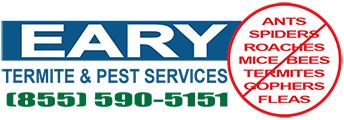Fly Control: Keep Your Home or Business Fly-Free
What Are Flies?
Flies are one of the most common pests found around homes, businesses, and farms. They are often associated with unsanitary conditions due to their attraction to food waste, garbage, and decaying organic matter. While flies are typically harmless in small numbers, an infestation can quickly become a nuisance, leading to health concerns, contamination, and general discomfort.
Common Types of Flies
- House Fly (Musca domestica): Grayish body with four dark stripes on the thorax and large, clear wings. Found in kitchens, trash bins, and anywhere food or waste is present.
- Fruit Fly (Drosophila melanogaster): Small, about 1/8-inch long, with red eyes and a tan or yellowish body. Typically found around overripe fruits, vegetables, and sugary liquids.
- Blow Fly (Calliphoridae family): Larger than house flies, with metallic green or blue bodies and large, dark eyes. Common around decaying flesh and organic material.
- Drain Fly (Psychodidae family): Small, fuzzy, with dark wings and a moth-like appearance. Found in drains, sewers, and areas with standing water.
- Cluster Fly (Pollenia rudis): Larger than house flies, with a dull gray color and golden hairs on their thorax. Often seek warmth indoors during colder months.
Signs of a Fly Infestation
- Large numbers of flies near food, trash, or waste areas.
- Presence of fly eggs or larvae in trash, organic waste, or decaying food.
- Unpleasant odors from rotting organic matter.
- Visible fly spots in corners, around food sources, or near windows.
- Buzzing noises and swarming flies near light sources.
Why You Should Control Flies
- Health Risks: Flies spread pathogens like Salmonella and E. coli, contaminating food and surfaces.
- Food Contamination: Flies transmit bacteria, feces, and saliva to food and utensils.
- Unpleasant Experience: The presence of flies creates discomfort and a negative atmosphere.
- Rapid Reproduction: Flies lay hundreds of eggs quickly, leading to infestations.
Effective Fly Control Methods
1. Sanitation
Keeping your home or business clean helps prevent flies. Regularly clean surfaces, properly dispose of trash, and remove standing water.
2. Fly Traps and Baits
Use fly paper, UV light traps, or fly baits to capture and eliminate flies.
3. Biological Control
Introduce predatory insects or biological pesticides to reduce fly populations.
4. Fly Repellents
Use essential oils like eucalyptus and citronella, or chemical repellents to deter flies.
5. Professional Pest Control Services
Eary Termite and Pest Service provides expert fly control solutions, including inspection, treatment, and prevention.
6. Environmental Modifications
Seal gaps and cracks in windows and doors, install fly screens, and modify outdoor areas to reduce fly attractants.
Why Choose Eary Termite and Pest Service for Fly Control?
- Experienced Professionals: Our team is trained in effective fly control methods.
- Tailored Solutions: We customize pest control plans for homes and businesses.
- Safe and Effective Methods: We use environmentally friendly, humane control techniques.
- Long-Term Protection: We help prevent future infestations.
Prevention Tips: Keep Flies Out for Good
- Maintain a clean environment by wiping surfaces and storing food properly.
- Seal entry points by installing door sweeps and fly screens.
- Manage outdoor fly attractants like compost piles and pet waste.
Contact Us for Expert Fly Control Solutions
If you're struggling with flies in your home or business, Eary Termite and Pest Service is here to help. Call us at (909) 590-5151 for a consultation or to schedule your fly control service today!
